Hey everyone, I’m back with a new article!
It’s been a solid couple of months since my last, and I’ll just put it out there: I was pretty burnt out.
For newer subscribers who don’t know me, I also run a social enterprise in the arts sector here in Australia that needed some extra attention the past few months. Add to that a big experimental leadership summit I helped design and facilitate a few weeks back, plus some lecturing and coaching on the side… it’s been a lot!
However, every single week, I kept thinking: “I haven’t published anything. I should be writing!” Week after week, that inner voice grew.
“I’m a productive guy. I’m someone that gets things done. I show up. I put in the hard yards. That means I should be doing more. Right? RIGHT!?”
But the guy who showed up every time I opened Substack was someone who couldn’t engage. My inbox was full of articles from my favourite writers that I didn’t click on. I stared at this damn screen with its damn blinking text cursor side-eyeing me (STOP JUDGING ME) and I just couldn’t find the motivation.
I should be writing.
The Is-Ought Problem
The astute linguists among you would’ve picked up on the trigger word there: Should.
We’re surrounded by ‘shoulds’. I should be writing. I should be more productive. I should be more disciplined. And that’s just the voices in my head. Compound this with the messages from those around me, whether it’s a friend or advice from the internet: You should be hustling. You should be resting. You should be posting 5 times a day to maximise engagement. You should only be working 4 hours a day.
Each of these ‘shoulds’ represents something that ‘ought’ to be happening, which can often be at odds with what ‘is’ happening.
My choice of language here is an attribution to the Scottish philosopher David Hume, who was credited with coining the ‘is-ought problem’. In short, the nature of the problem is when people make claims about what ought to be based solely on statements about what is. Put another way, it can be a common tendency among people to extrapolate what the world should be like, based on our perceptions of what is happening / had happened.
At a macro level, these are some simple examples:
Traditional views of masculinity hold that men are stoic and strong, therefore men ought to avoid being open with expressing vulnerability or emotions
Employees are expected to work long hours in many high-pressure industries, therefore employees ought to accept long hours as the norm
The Earth’s climate has always gone through natural cycles of warming and cooling, therefore we ought to view current climate changes as natural and not do anything about it
Coming back down to an individual level, the is-ought problem can create quite a bit of tension and dissonance in our personal lives. I believe I’m a pretty hard worker and I would attribute much of the success in my life to putting in the hard yards, therefore I ought to be constantly productive.
However, this dissonance between what I ought to have been doing (writing, being productive) versus what I was feeling at the time (burnt out as hell) drained me even more, with an emotional hangover of self-loathing and frustration.
Reframing Is-Ought from a Curiosity Mindset perspective
Now, Hume’s original philosophy (simplistically summarised) argues that we should not derive ‘oughts’ from ‘what is’, and his subsequent arguments essentially go down the path of suggesting that we should discard all oughts unless they are rooted in reality; I won’t be debating his philosophy in this article but suffice to say he wasn’t popular among the religious folks!
Instead, I want to reframe the idea of is-ought in context of curiosity. In this earlier article, I present the theory of ‘information gaps’ as the trigger of curiosity; that when we’re presented with something new, the gap between that new piece of information and what we know is what ignites our curiosity.
I see ‘is-ought’ in a similar light. The ‘ought’ / ‘should’ is an idea, concept, or state that is ‘somewhere in the distance’ compared to what ‘is’ happening now. Even though it’s not a ‘new’ piece of information per se, that gap triggers all sorts of curiosities and questions from us.
I am burnt out. I ‘ought’ to be more productive. That gap triggered a deluge of questions spiralling through my head: “What if I tried sleeping a bit less? Maybe I need to skip going to the gym so I can spend more time writing? What if this bag of chocolate would make me more productive?”
Then I spoke to a couple of friends about my challenges. “Have you tried this supplement that’s meant to help with concentration? Have you listened to that podcast on deep work? Have you seen <Insert Influencer Here>? They’ve got some strategies on dealing with productivity.”
Macro this up to all aspects of our life, and I argue that the same dynamic occurs. Our aspirations of achieving success, of creating a better world, of having better relationships, of comparing ourselves to others.
Nature abhors a vacuum. If we think of the gap between who we are and who we aspire to be as a vacuum, it’s almost inevitable that we try to fill that gap with something.
If we want to get a bit more insidious, now imagine projecting our ‘oughts’ and ‘shoulds’ on to other people. “Leaders should be respectful and inclusive; why aren’t all our leaders like this? Partners should be more respectful and caring; why isn’t my partner like this?”
Not to get political but if we look at the US election, there are big chunks of the population who feel that the election ought to have gone a different way. The fact that it didn’t may have created a gap (for some) that is now filled with anxiety and dread.
Reactive vs conscious curiosity
There is value in ‘oughts’. A vision is an ‘ought’. A vision can inspire change. I don’t want to let go of my dream of making the world a little bit more curious, because that gap is what drives and motivates me. However, in walking that path, it’s important to look down on occasion to take stock of where I am right now, which in and of itself may lead to new ideas.
For instance, this break from writing and having the is-ought problem growing in my subconscious compost heap has even helped me identify a new way of thinking about different types of curiosity that may arise from the is-ought gap: Reactive curiosity vs conscious curiosity.
Reactive curiosity are the questions that arise when we hold on to an ‘ought’ tightly, where we assume that is the direction we must travel towards.
Conscious curiosity is the opposite of that. It’s when we can hold multiple ‘oughts’ lightly, and we make a conscious choice which gap we might want to step into.
There are pros and cons to both. If we’re clear about a goal or direction, then we might want to be in a mode of reactive curiosity so that our questions and energy is directed towards that ‘ought’. The downside is all the baggage I’ve described above.
If we’re unsure about a goal or direction, then it might be more useful for us to be in a mode of conscious curiosity, so that we hold all our ideas lightly. The downside is that it’s possible to get lost in endless wondering, and thus our journey may take longer.
So what did I actually do?
I started this article sharing my journey through burnout and grappling with living in my ‘ought’ world for far too long. So what did I do to break that cycle of reactive curiosity? Well, for one, I took a break. I drove down the coast and hung out in a beautifully quaint artist studio by the sea.
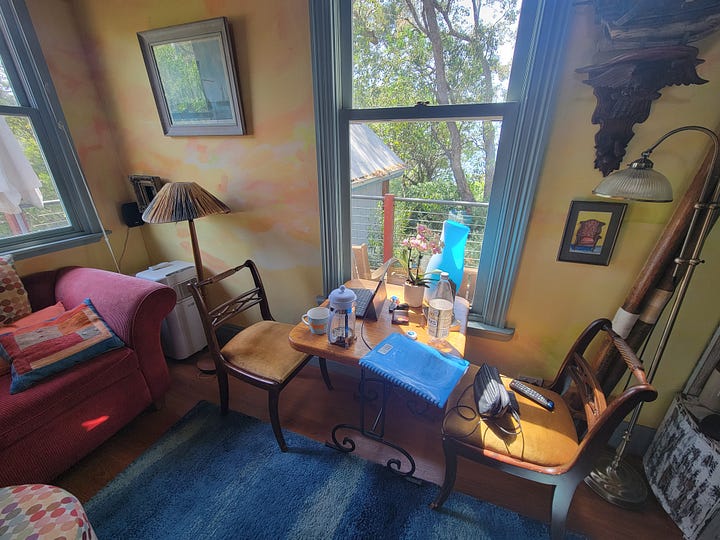
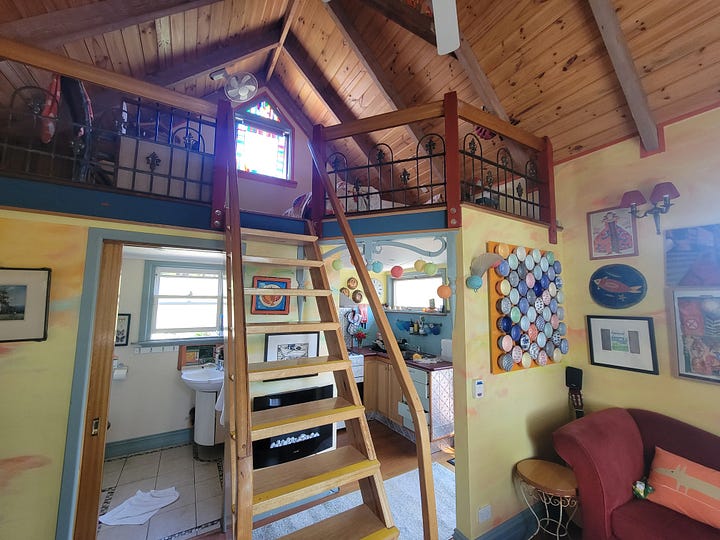

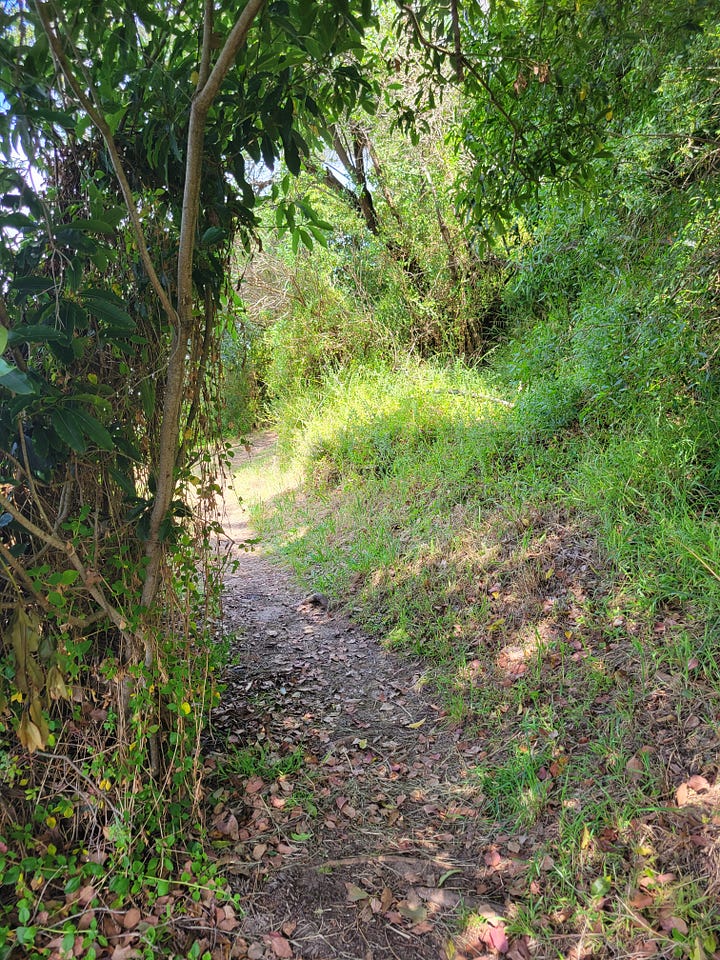
Whilst I was there, I did have a moment where I thought: “Oh, maybe I’ll write something!” but honestly, when I got there, I just did nothing. I just sat and looked at the sea. I went for a walk. I gave myself the permission to just be me.
And of course, I had this fantastic conversation with two fellow Substackers:
and .Hope you enjoyed article. As a parting ask now that I’ve introduced these two types of curiosity, can you identify moments of ‘reactive’ vs ‘conscious’ curiosity in recent times? If so, I’d love to hear from you.
Stay tuned for my next article, where I’ll share my reflections from the ‘anti-leadership anti-summit’!
PS. If you enjoyed this article, please do leave a like and a comment. Every bit helps! If you really liked this article, then please give it a restack!





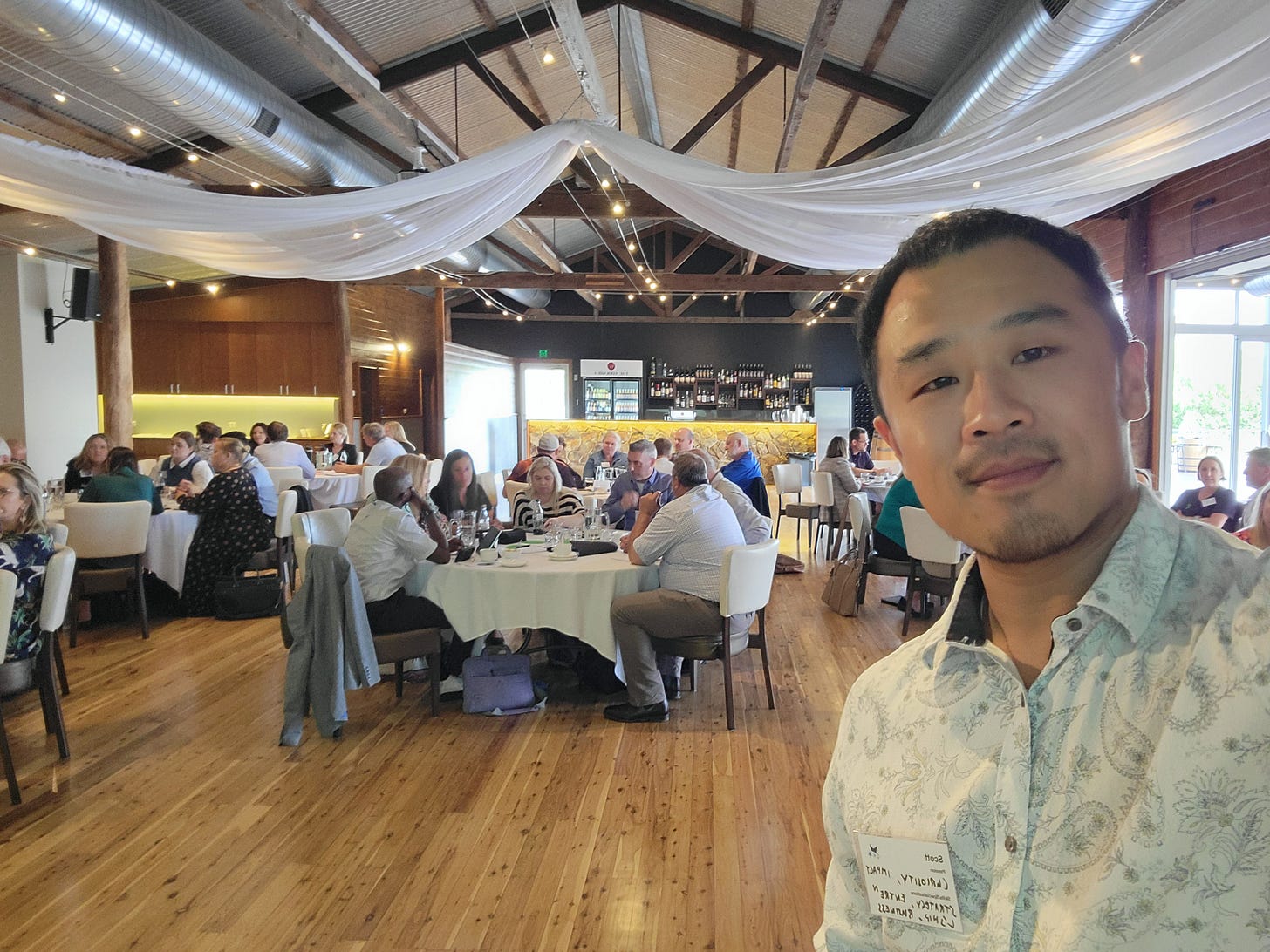
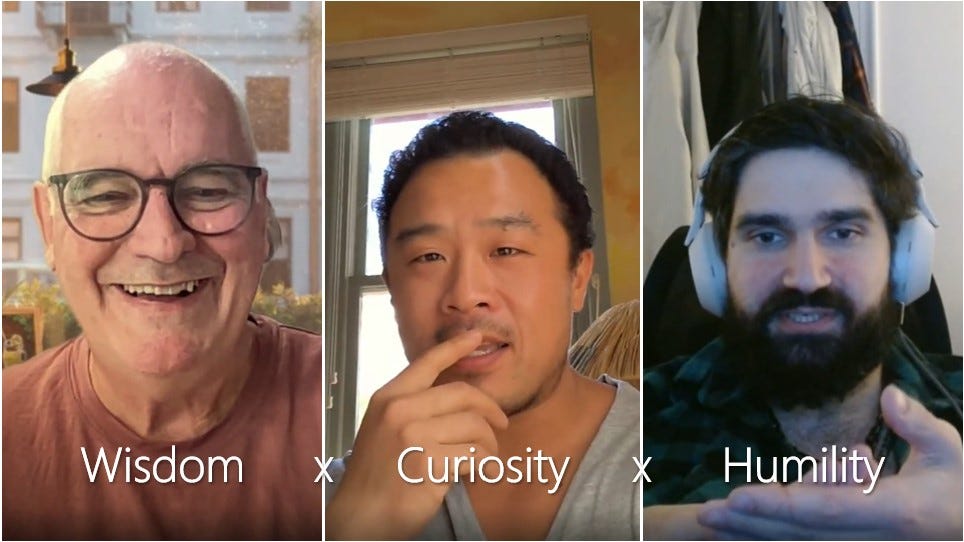
‘I had this fantastic conversation with two fellow Substackers: Nur Nadar and Ian Haycroft.’ You mean anti-fantastic anti-conversation
Each "should" is a tiny paper cut to your soul lol - A thousand "shoulds" later, we're bleeding motivation. The gap between who we are and who we "should" be isn't a problem to fix.
It's a space to explore.
I love this - "conscious curiosity vs. reactive curiosity."
Sometimes, the most productive thing you can do is sit by the ocean and do absolutely nothing.
Not because you should. But because you could. That's what I've been doing for the past 2 weeks hahahahaha.
Thank you Scott.